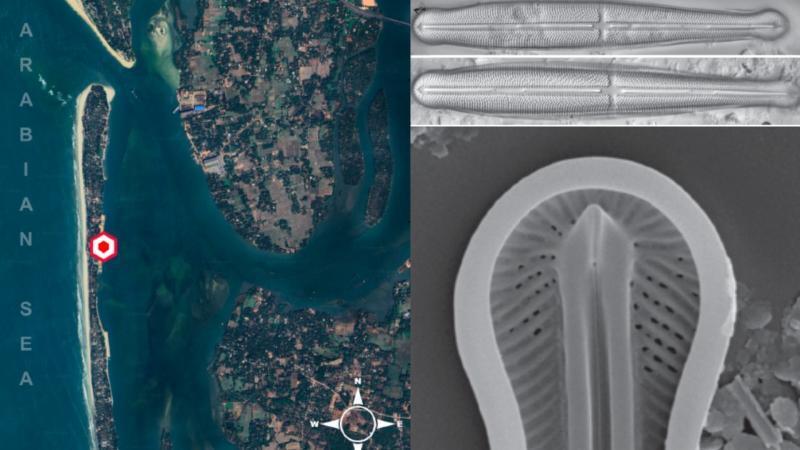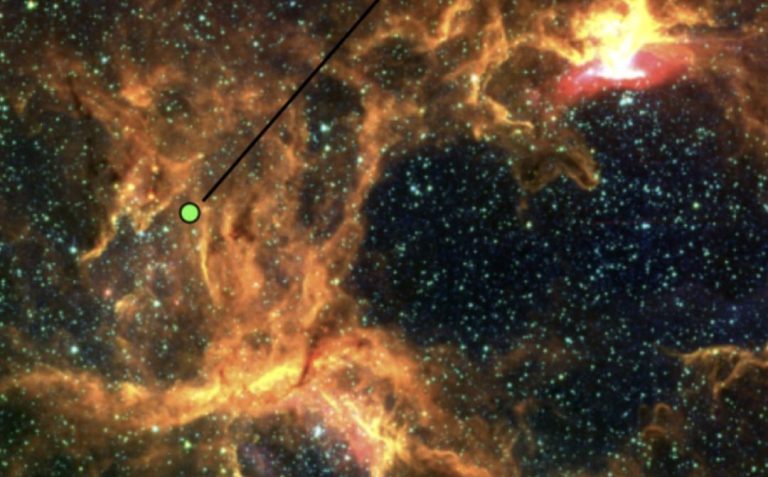
India’s new microscopic ocean jewel discovered off west coast
Deep beneath the waves of India’s southwest coast, a team of scientists has made a groundbreaking discovery that expands our understanding of marine biodiversity. A new species of diatom, Climaconeis heteropolaris, has been found in the waters off the coast of Karnataka, a state in the western part of India. This remarkable find highlights the rich, unexplored microscopic life in our oceans, which is crucial for ecosystem health and environmental monitoring.
Diatoms are a type of algae that are found in aquatic environments all over the world. They are incredibly important for producing oxygen and forming the base of aquatic food webs. These tiny organisms are able to photosynthesize, just like plants on land, and produce oxygen as a byproduct. This process is essential for supporting the vast array of marine life that depends on them for food.
The discovery of Climaconeis heteropolaris is significant not only because it is a new species, but also because of its unique shape. Diatoms are typically symmetrical, with their cells having a radial symmetry. However, this new species has an asymmetrical shape, with its cell wall having a distinct polar region. This unusual shape is what sets it apart from other diatoms and makes it a fascinating subject for further study.
The team of scientists who made the discovery, led by Dr. S. S. D’Souza of the National Centre for Oceanography, used a combination of traditional microscopy and advanced imaging techniques to study the new species. They collected samples from the coastal waters of Karnataka and then used a variety of methods to analyze the cells and determine their characteristics.
One of the most significant aspects of this discovery is the insight it provides into the diversity of microscopic life in our oceans. Diatoms are just one type of microorganism that can be found in aquatic environments, and there are many more species that are still waiting to be discovered. The discovery of Climaconeis heteropolaris highlights the importance of continued research into the microbial world, which is crucial for understanding the complex interactions that occur in aquatic ecosystems.
In addition to their role in producing oxygen and forming the base of food webs, diatoms also play a critical role in the formation of sediment and the cycling of nutrients in aquatic environments. They are an important component of the marine food chain, serving as a food source for a wide range of animals, from small invertebrates to large fish and mammals.
The discovery of Climaconeis heteropolaris also has important implications for environmental monitoring and conservation efforts. Microorganisms like diatoms are sensitive to changes in their environment, and can serve as indicators of the health of aquatic ecosystems. By studying the distribution and abundance of diatoms, scientists can gain valuable insights into the impact of human activities on the ocean and the ecosystem.
In conclusion, the discovery of Climaconeis heteropolaris is an exciting development that highlights the rich, unexplored world of microscopic life in our oceans. This new species of diatom is just one example of the many fascinating organisms that are still waiting to be discovered and studied. As we continue to explore and learn more about the microbial world, we are reminded of the importance of protecting and preserving our oceans, and the many species that call them home.
Source:
https://researchmatters.in/news/new-diatom-species-discovered-indias-west-coast-karnataka






